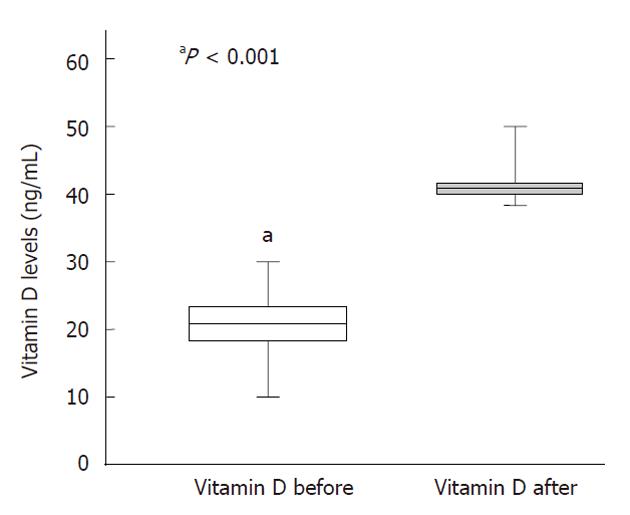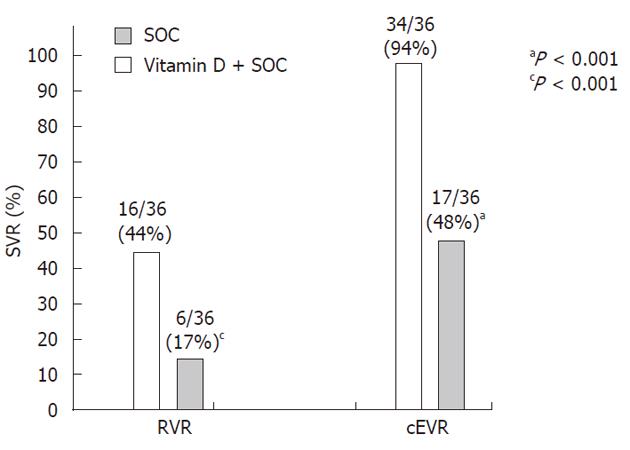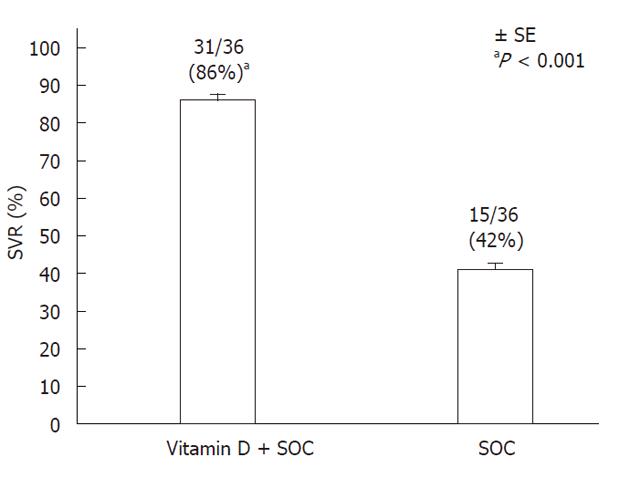Copyright
©2011 Baishideng Publishing Group Co.
World J Gastroenterol. Dec 21, 2011; 17(47): 5184-5190
Published online Dec 21, 2011. doi: 10.3748/wjg.v17.i47.5184
Published online Dec 21, 2011. doi: 10.3748/wjg.v17.i47.5184
Figure 1 Vitamin D serum levels before and at 4 wk after the beginning of antiviral treatment + vitamin D supplementation (n = 36).
Bars represent standard error.
Figure 2 Rate (%) of the rapid viral response and rate of early viral response in the treatment (n = 36) and control (n = 36) groups.
RVR was defined as undetectable HCV RNA at 4 wk during treatment. Complete EVR (cEVR) was defined as undetectable HCV RNA at 12 wk during treatment. SOC: Standard of care; RVR: Rapid viral response; EVR: Early viral response; HCV: Hepatitis C virus; SVR: Sustained viral response.
Figure 3 Rate of sustained viral response in the treatment group (Vitamin D + SOC, n = 31/36) and the control group (n = 15/36, SOC) 6 mo after cessation of treatment.
SVR was defined as undetectable HCV-RNA at 24 wk post-treatment. Bars represent standard error. SOC: Standard of care; SVR: Sustained viral response; HCV: Hepatitis C virus.
- Citation: Abu-Mouch S, Fireman Z, Jarchovsky J, Zeina AR, Assy N. Vitamin D supplementation improves sustained virologic response in chronic hepatitis C (genotype 1)-naïve patients. World J Gastroenterol 2011; 17(47): 5184-5190
- URL: https://www.wjgnet.com/1007-9327/full/v17/i47/5184.htm
- DOI: https://dx.doi.org/10.3748/wjg.v17.i47.5184











